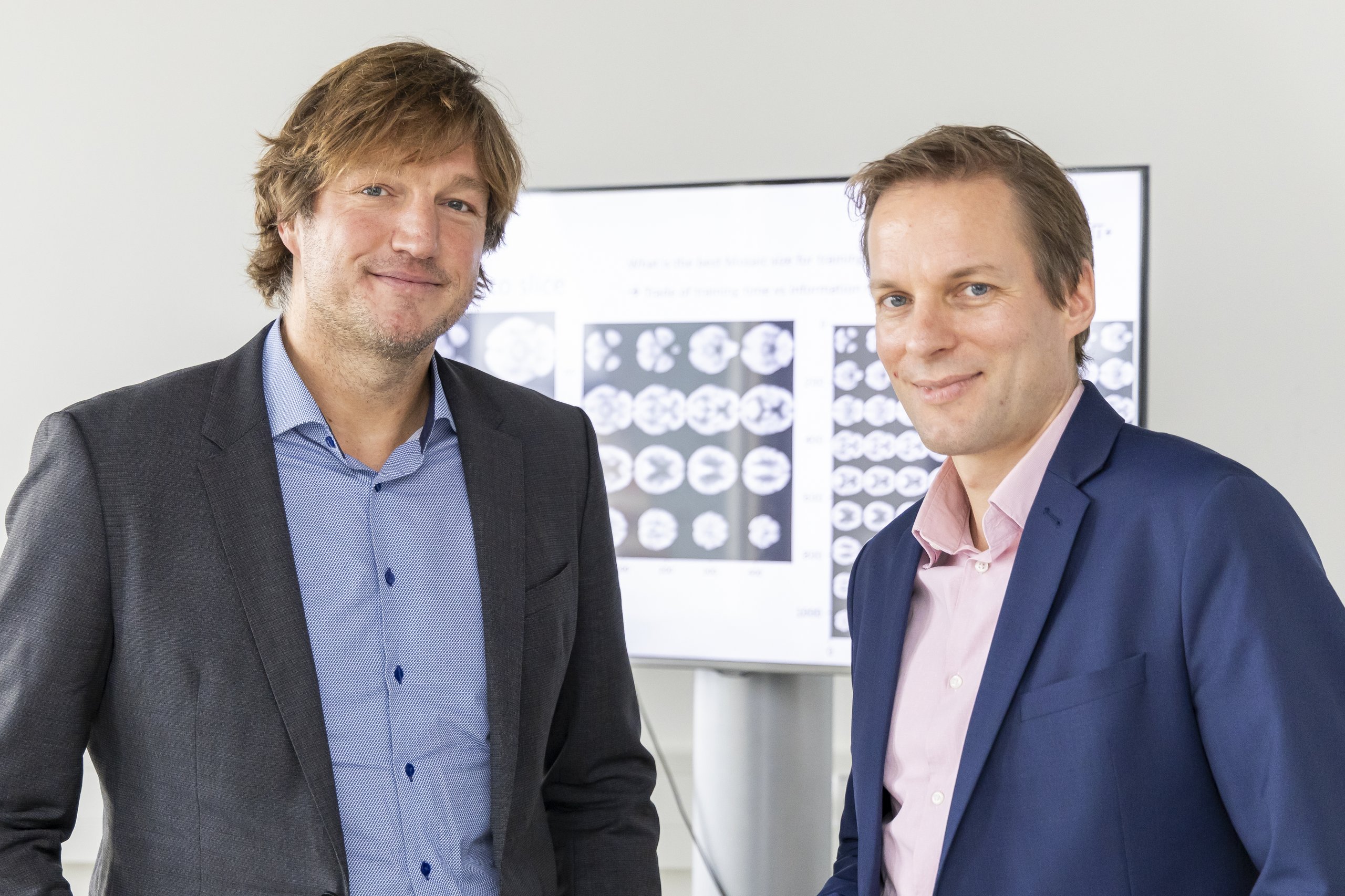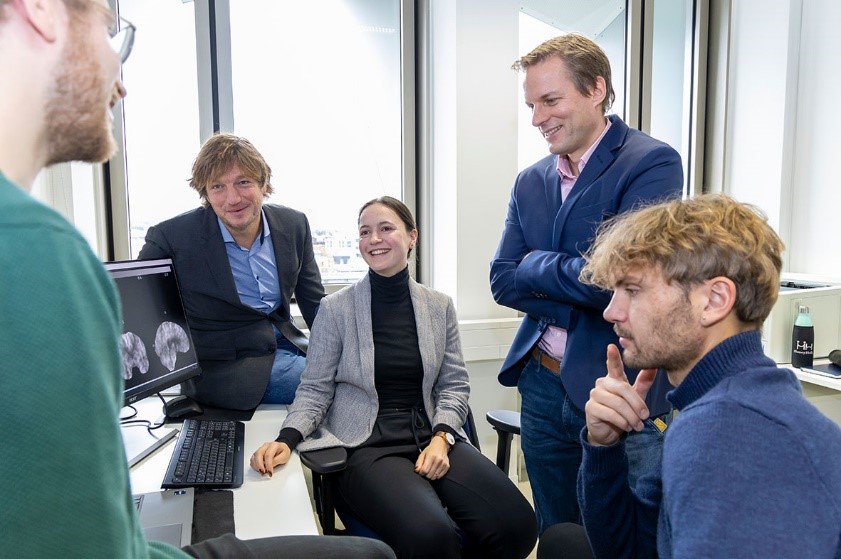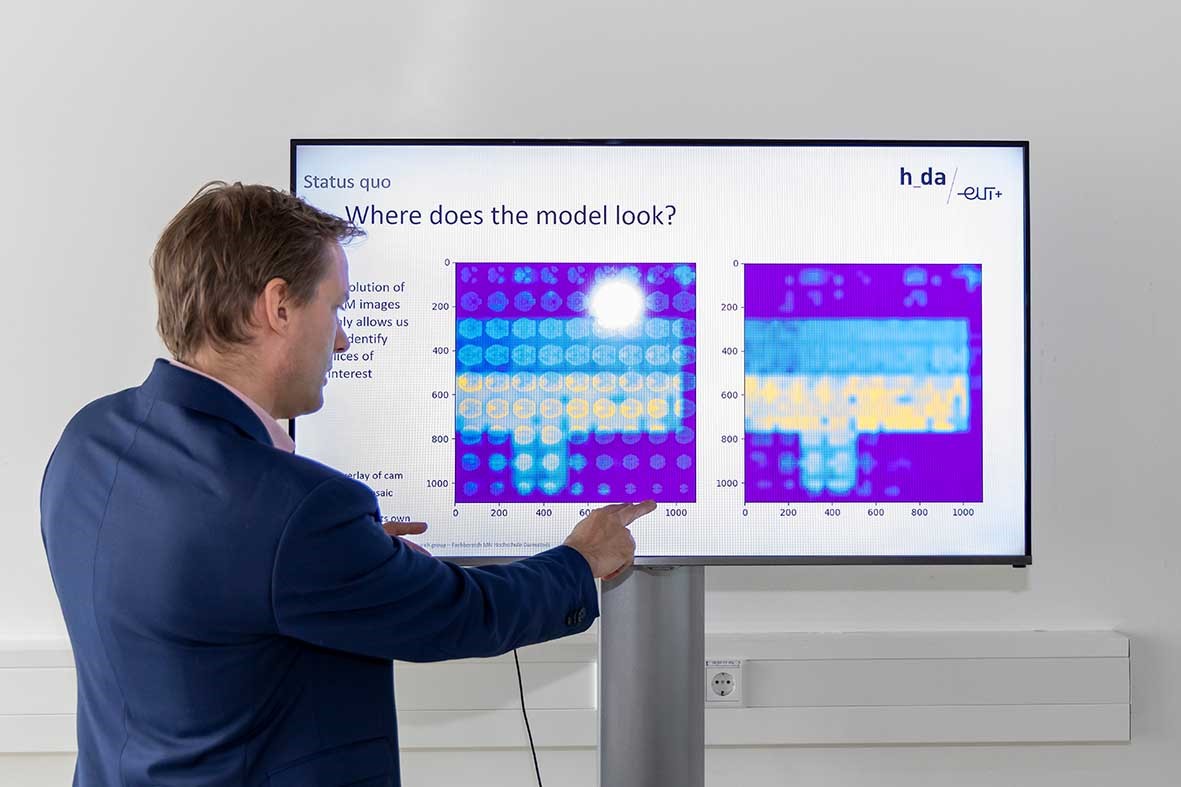There are currently around 1.8 million people living with dementia in Germany, most of whom have Alzheimer's disease. According to forecasts, the numbers will rise significantly unless there is a medical breakthrough in the next few years. Nevertheless, the first drug that specifically targets the protein deposits in the brain that are characteristic of Alzheimer's was approved in the USA last year. However, the new drug only helps if the disease is detected early. This is precisely where a team from the Department of Mathematics and Natural Sciences at Darmstadt University of Applied Sciences comes in: In an EU-funded project, the scientists at h_da are working with partners in the Netherlands, the UK and Germany on new methods of diagnosing Alzheimer's disease. Their aim is to be able to detect the disease earlier and treat it more successfully as soon as appropriate drugs come onto the market.
Read the full article by Christina Janssen in the science magazine impact
Study programs
- Bachelor's degree course in Optotechnology and Image Processing
- Master's degree course in Optotechnology and Image Processing
Project team
- Prof. Dr. Johannes Gregori on LinkedIn
- Prof. Dr. Andreas Weinmann: fbmn.h-da.de/weinmann-andreas
- University Medical Center Amsterdam: www.amsterdamumc.org/en.htm
- Gold Standard Phantoms: goldstandardphantoms.com/
- mediri: mediri.com/
- EU funding line Eurostars: www.eurostars.dlr.de/
Further links
- German Alzheimer Society: New figures on dementia
- Alzheimer's Research Initiative: New Alzheimer's drug
- DER SPIEGEL, 7.7.2023: Therapy with antibodies
Contact the h_da science editorial team
Christina Janssen
Science Editor
University Communications
+49.6151.533-60112
christina.janssen@h-da.de


